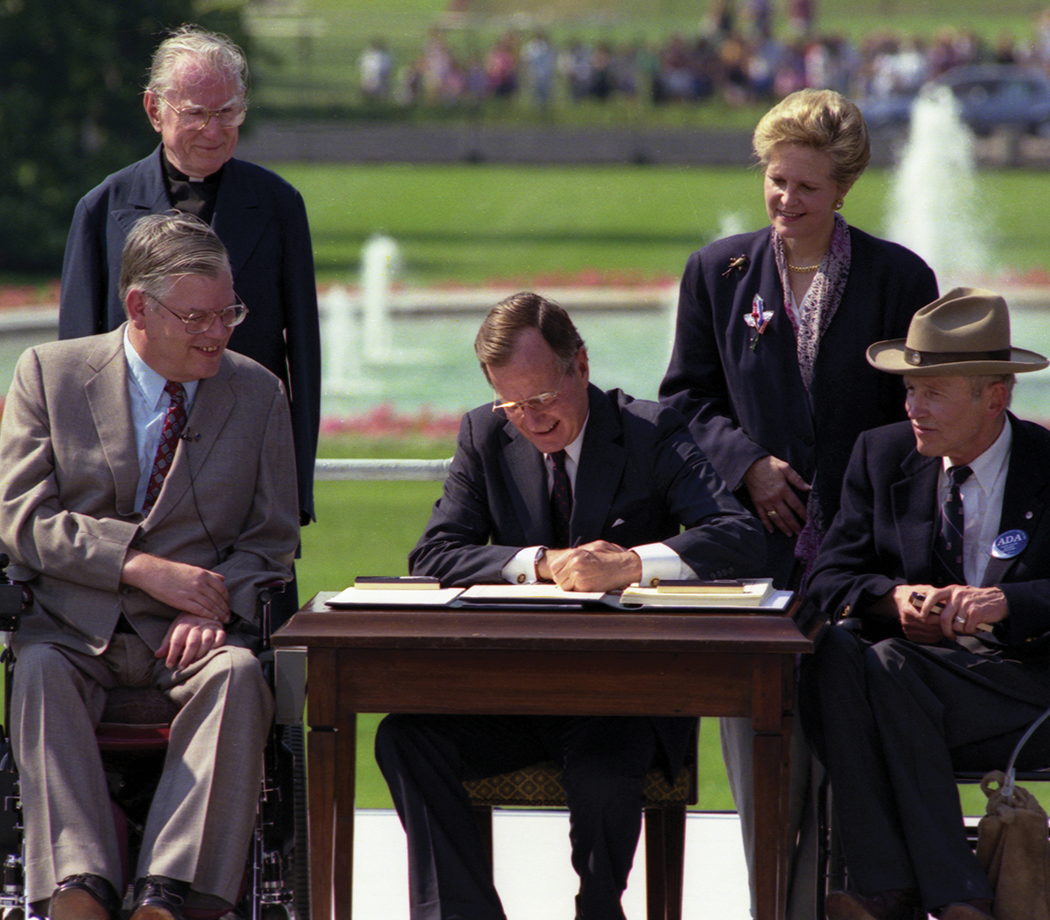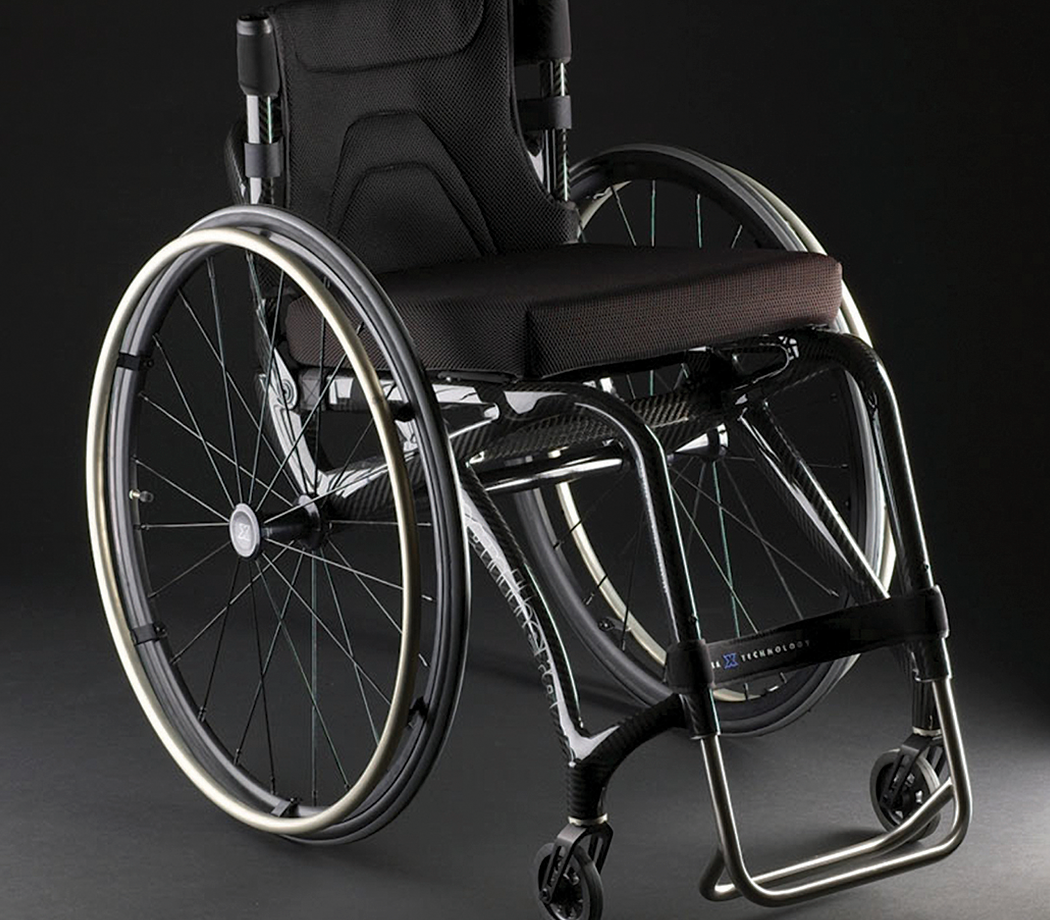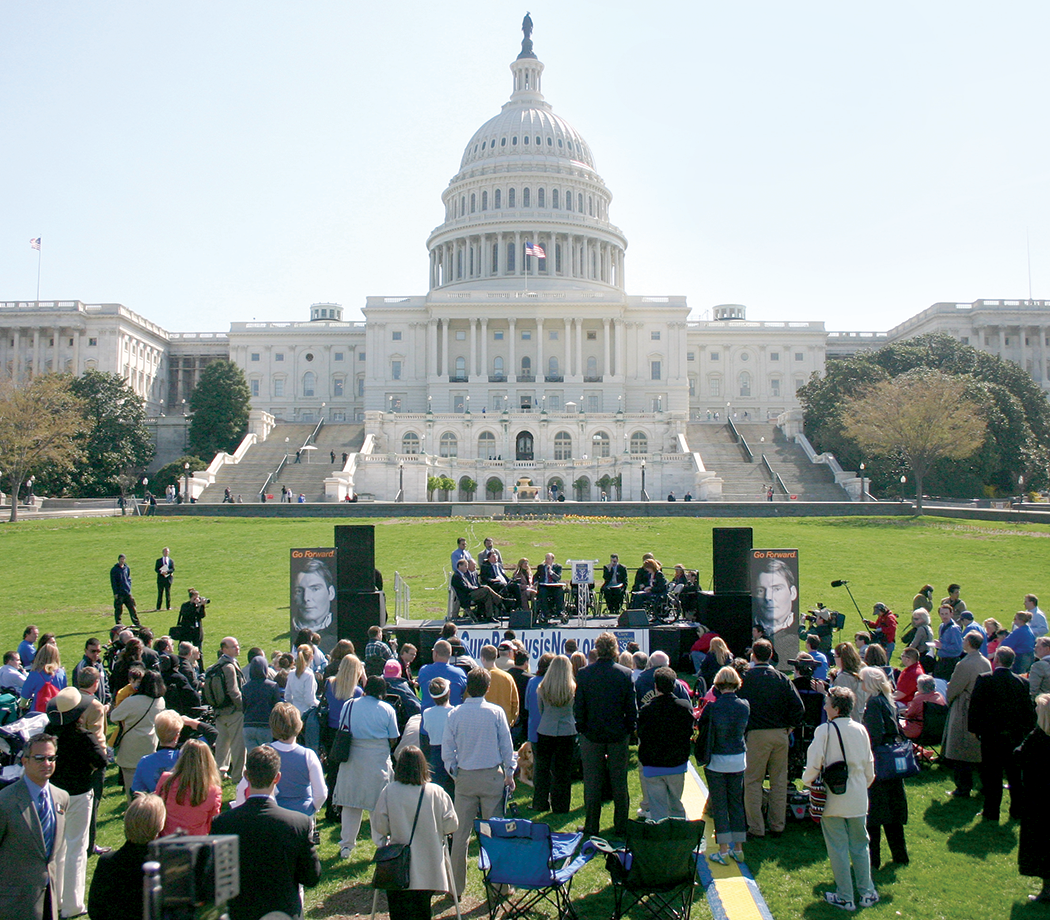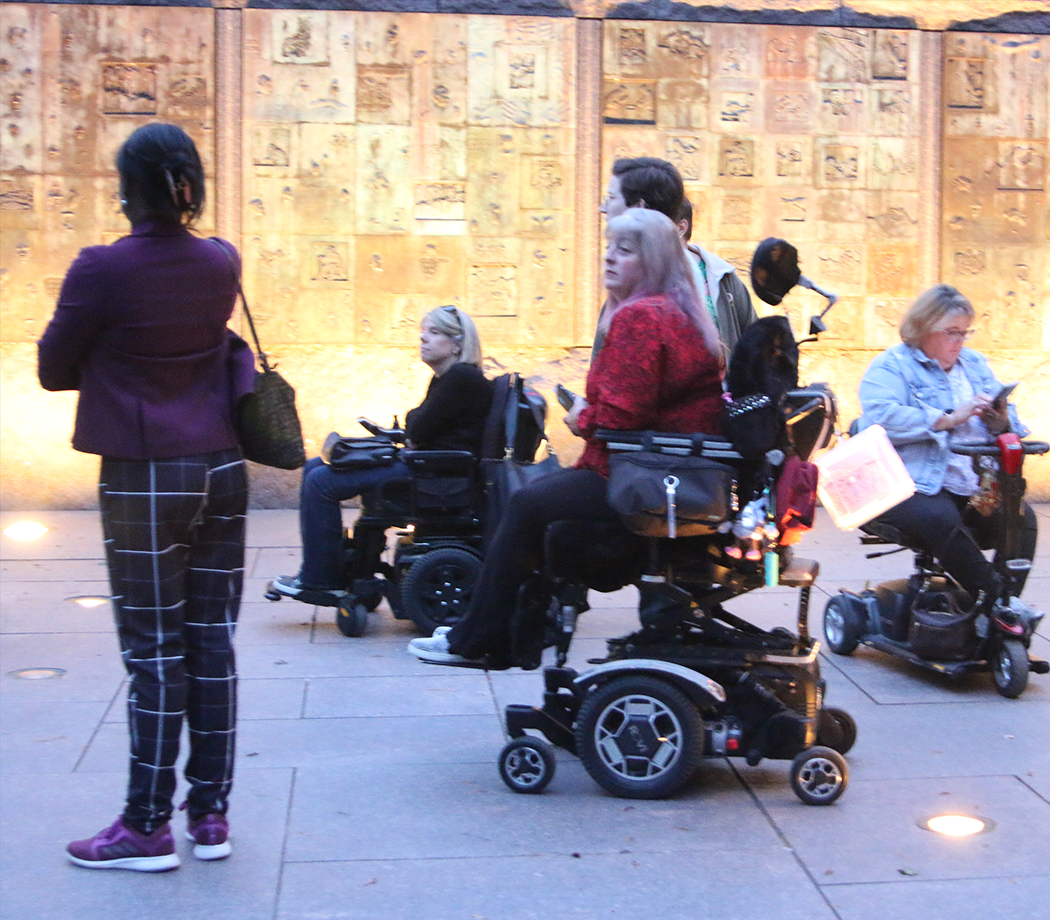Be an Advocate
Introduction to Advocacy
 When you or a loved one sustains a spinal cord injury, it can motivate you to become an advocate for the Spinal Cord Injury (SCI) and paralysis community as a whole.
When you or a loved one sustains a spinal cord injury, it can motivate you to become an advocate for the Spinal Cord Injury (SCI) and paralysis community as a whole.
Advocacy takes many forms—from educating just one person about what it means to live with an SCI to informing elected officials about the issues involved, with the goal of moving them to take action and make important changes to public policy.
Working With Elected Officials
The idea of working with elected officials may seem intimidating, but rest assured you don’t need to be a scientist, economist, or a paid professional lobbyist to be an effective advocate.
With so many issues before them, elected officials need your help to understand the costs associated with paralysis, the importance of continued funding for innovative research, and the true impact that their decisions have on the quality of life of people living with SCI and paralysis. By sharing your own story, you can help them make informed policy decisions.
Contacting Your Legislators
You can contact your elected officials via phone, email, and/or snail mail.
Letters and emails are a great way to introduce yourself and tell your story in a personal, compelling way that will catch the attention of legislative staff. You might want to start your letter or email with a personal anecdote, for example, and segue into the challenges and issues that need addressing on a legislative level. Always include your state or district and explain that you are working with the Reeve Foundation.
Phone calls are particularly effective just before an important vote is scheduled, when your legislators’ staff is trying to tally their constituents’ opinion on an issue.
If you don’t know who your legislators are (don’t worry, you’re not alone!) visit www.congress.gov and enter your zip code. From there, you should be able to find their contact information.
Face-to-Face and Zoom Meetings
Face-to-face meetingswhether in person or via a video conferencing technology—are powerful ways to advocate; most congressional staff will tell you this is the most effective form of advocacy.
Most offices have a health legislative assistant that can help you schedule a meeting. Let the Reeve Foundation know you’ll be meeting with legislators by emailing Gerard Arnum, our Grassroots Advocacy Manager at [email protected]. Feel free to also reach out to Gerard if you would like assistance in preparation for your meeting.
Tips for Building Productive Relationships
No matter how you choose to communicate, keep in mind that building relationships with elected officials, as with anyone, does not happen overnight. It takes time and effort over the long term, and it’s built upon trust. Strong relationships translate into effective advocacy.
You should always:
- Be honest. Being upfront with elected officials about who you are and what your goals are is the basis for a productive, trusting relationship.
- Be respectful. When advocating for issues you care about it’s important to be courteous and respectful to everyone you meet. Regardless of political party or views. This increases the chances key decision makers will want to listen to your ideas.
- Be responsive. If someone from a legislator’s office calls or emails, follow up as soon as you can. If you need more time to gather correct information, let them know and get back to them as soon as possible.
- Be clear. With so many pressing issues, it can be easy to layer one request on another. But it’s easier for people to help you when you are clear and concise about what you are asking for.
- Be well-informed and consistent. Share important information with your elected officials regularly, not only when there is a critical policy debate. As a result, you’ll be seen as an authority on spinal cord injury and paralysis. One of the easiest ways to stay up to date on current issues is to subscribe to the Reeve Foundation newsletter. Or you can sign up and become a member of our Regional Champions Program.
- Be persistent. You may not get what you want on the first attempt or meet with who you want on the first request. But keep pushing. Persistence yields results.
Raising Public Awareness
Although direct communication with elected officials is a powerful tool for communicating your views on an issue, there are additional steps you can take in your own community. You can raise public awareness by sharing information with your child’s teachers, by distributing educational material at community events, and by attending walks or other activities designed to benefit the SCI community.
Raising awareness is so important when it comes to advocacy. The more people who know about the issue, the more likely it will be presented to the right person that can help make a change. Do not be embarrassed or shy when spreading information about the National Paralysis Resource Center (NPRC) or the Reeve Foundation. You never know who can benefit from the resources the NPRC offers.
Social Media
Legislators’ offices pay attention to what their constituents are saying via Twitter, Facebook, Instagram, TikTok and other social media platforms.
Social media allows constituents to communicate with multiple people in the legislator’s office. For example, a tweet directed to a legislator’s Twitter handle may be seen by the communications director, legislative assistants, chief of staff, and perhaps even the legislator him or herself.
Most recently, social media has had a huge impact on the way individuals receive their news. You see many legislators using social media to interact directly with their constituents. They explain what exactly they are doing and how it will be beneficial to their district or state. Another benefit of social media is that it allows you to expand your message beyond your state.
Online networks, message boards, and community forums dedicated to spinal cord injury and paralysis, such as the Reeve Foundation’s Paralysis Community, provide another excellent way to connect with other advocates and form action coalitions.
Ready to get started? Become an advocate today!
Want to get more involved? Please reach out to Gerard Arnum, our Grassroots Advocacy Manager ([email protected]) and ask him about our Regional Champions Program.






